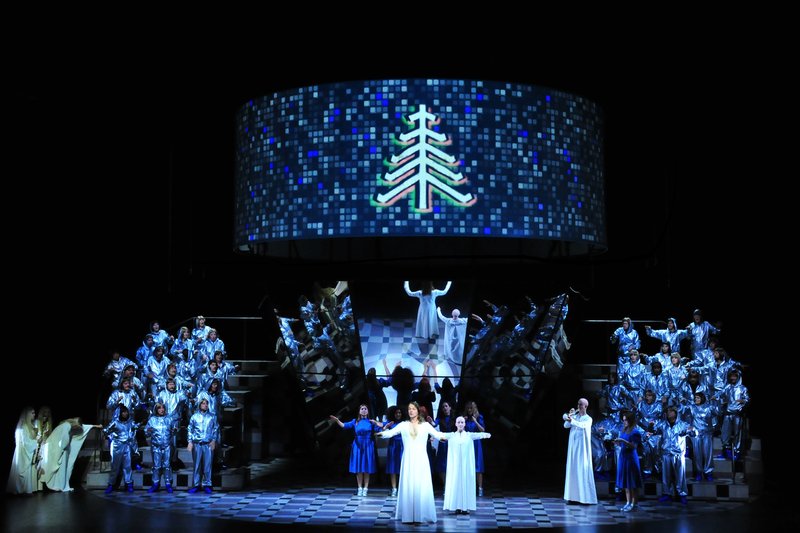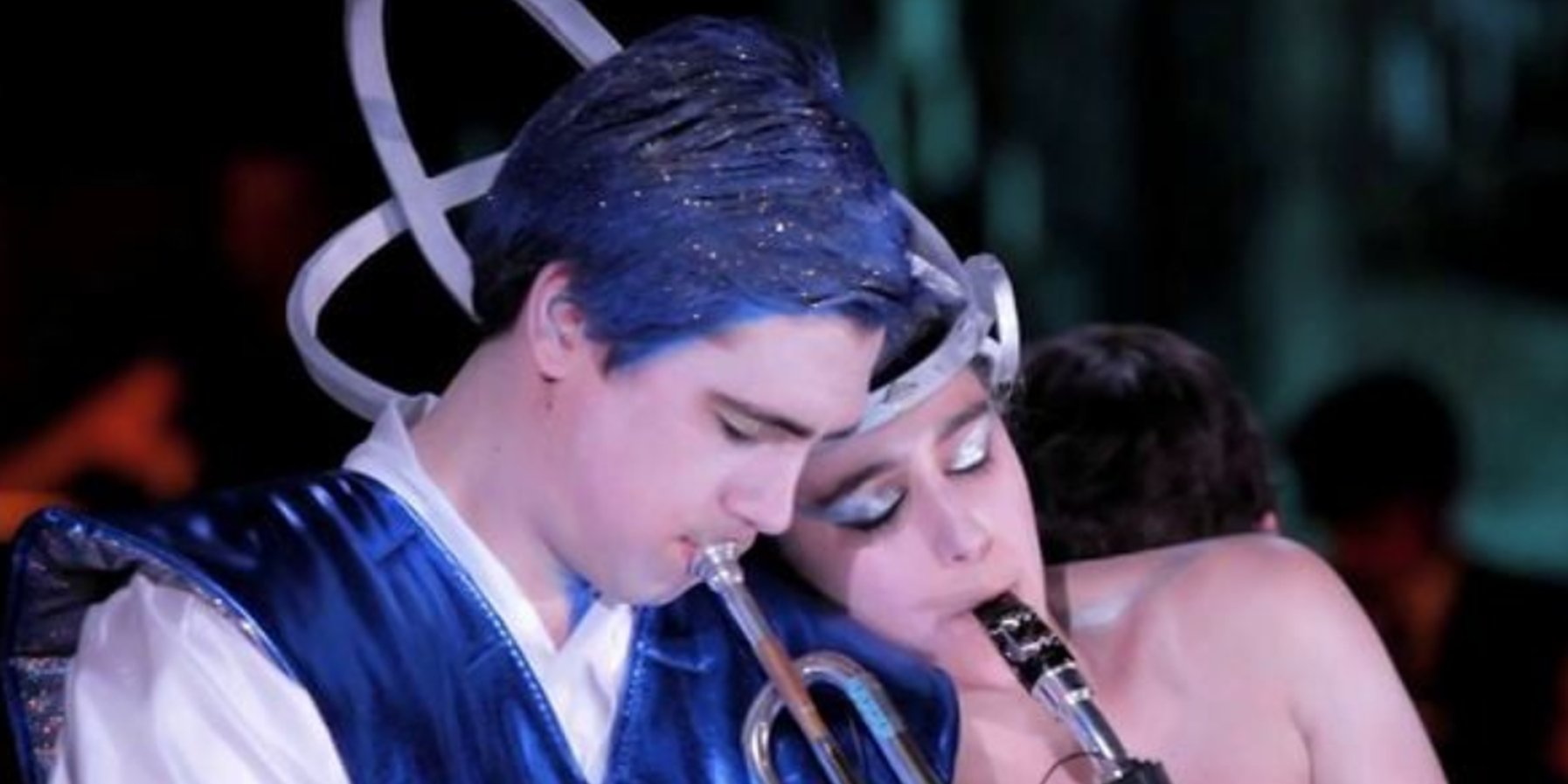Karlheinz Stockhausen (1928-2007), who was highlighted at Hamburg International Music Festival 2018, was not only one of the 20th century’s most important composers, he was also a serious eccentric. Among other things, he believed that he came from the planet Sirius...

»I was educated on Sirius, and I want to go back there, although I’m currently living in Kürten near Cologne. Everything is highly intellectual on Sirius. There is next to no time lapse between conception and realisation. What we know here as an audience, passive listeners: this doesn’t exist at all on Sirius – everyone is creative.«
Karlheinz Stockhausen
LIGHT – THE SEVEN DAYS OF THE WEEK
No more of this world than Stockhausen himself is his epic opera cycle »Licht« (Light), which he worked on for almost 30 years, from 1977 to 2005. With a total running time of 29 hours, it’s the longest opera cycle in music history, and has never been performed in its entirety to date.
As he had already done in other large-scale works, in »Licht«, Stockhausen endeavoured to combine scenic, visual, spacial-acoustic and musical ideas into one unified whole. The seven-part cycle is subtitled »The Seven Days of the Week«, and one opera is allotted to each day of the week. The seven days are intended to illustrate human life and its division into blocks of time. Stockhausen chose the title »Light« to refer to the divine, to religious and mystic elements that play an important role in the cycle. He also incorporated autobiographic elements into the work.

A Gesamtkunstwerk
With this cycle, Stockhausen revived Richard Wagner's idea of the »Gesamtkunstwerk«, a synthesis of the arts, and like Wagner he places several operas in a mythological context. The characters are given their own musical material to identify them; Wagner uses the term leitmotif, while Stockhausen refers to formulas.
The composer wrote not only the music, but also the texts and all instructions for the facial expressions, gestures and choreography of the characters. As each day of the week has a specific colour assigned to it, he also stipulated the costumes, the symbols to be used and the colour scale for the stage lighting.

The Main Characters: Michael, Eve and Lucifer
Stockhausen took particular inspiration for his opera cycle from the Urantia Book – a cosmological work published by the Urantia Brotherhood in Chicago in 1955. Here, Urantia is the true name of the planet Earth, and forms part of the local universe, Nebadon, consisting of 10 million inhabited worlds.
For the three main characters in »Licht«, the protagonists in the Urantia Book served as models. In the Urantia cosmology, Michael is the creator and ruler of Nebadon (local universe), son of the supreme creator, who finally becomes Jesus Christus in order to quell the uprising of the antagonist Lucifer. Eve stands for the renewal and re-creation of the human race.
Michael
Stands for what is good, for the creative element, for the power of evolution (voice: tenor, instrument: trumpet)
Eve
Stands for birth (voice: soprano, instrument: bassett horn)
Lucifer
Stands for evil and destruction (voice: bass, instrument: trombone)
Donnerstag from »Licht«
The opera »Donnerstag« (Thursday) consists of three acts, a greeting and a farewell. It was written between 1978 and 1980, and lasts for roughly six hours. The premiere was given on 15 March and 3 April 1981 in Milan, and the work was last performed in 2016 at Theater Basel. At the Hamburg International Music Festival, only Act Three (Michael's homecoming), plus the greeting and the farewell, will be performed.

The central character in the opera »Donnerstag« is Michael (= good, creativity, the power of evolution). There are parallels to Stockhausen’s own biography in the story: Michael learns a trade from his father, while his mother teaches him to love music. His father is then killed in combat, while his mother is committed to a mental hospital (on the contrary, Stockhausen's mother was killed by the Nazi's because she was assumed depressed). Michael has to pass three tests, and finally finds fulfilment in music.
The third act depicts Michael's experiences as a human being on Earth and the celebrations held to mark his return to the skies. The act opens with the Festival scene, in which Michael returns to Sirius and is welcomed by Eve, who gives him three gifts. However, Lucifer has hidden a devil in one of the gifts in the guise of a dragon, and so Michael finds himself involved in a fight against a dragon.
In the second scene, Vision, Michael describes the story of Lucifer and talks about his experiences and his destiny on Earth.

In the Kampnagel performance in Hamburg, Michael's homecoming was shown in a semi-scenic production with the Symphony Orchestra of the Hochschule für Musik und Theater Hamburg, the Europa Chor Akademie Görlitz, the soloists Anu Komsi (soprano), Rolf Romei (tenor) and Michael Leibundgut (bass), Merve Kazokoğlu (bassett horn), Paul Hübner (trumpet) and Kevin Austin (trombone), plus three dancers. The performance was conducted by Peter Eötvös, with support from Stockhausen's long-standing confidante, flautist and sound engineer Kathinka Pasveer.
Text: Julia Mahns, last updated: 23.04.2018




